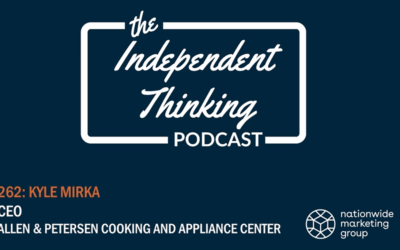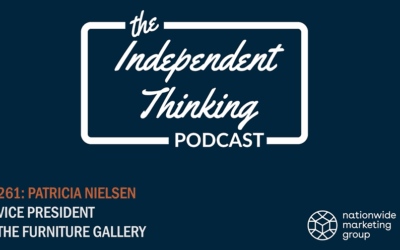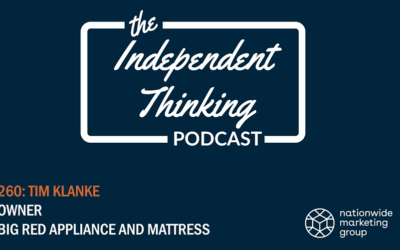In 2019, spending on digital advertising exceeded traditional ad spending for the first time, according to eMarketer, with Google and Facebook earning more than half of the global spend.
The value of these digital ads is their ability to target specific individuals with precision, based on their location, device, search terms, emailing and posting history. Advertisers, including RWS’ own AdRocket platform, rely on Google and Facebook’s precision targeting capabilities to deliver website traffic and conversion rates to retailers.
Following the Cookie Crumbs
What makes this tracking capability possible is the placement of a “cookie” — a small bit of tracking code — on your device.
First-party cookies placed by the websites themselves can be helpful, allowing the site to remember items in your shopping cart, personalizing your return visits, and storing your login and password information for a more streamlined experience.
Third-party cookies — code placed by sources other than the website, but usually with the site’s permission — often act as tracking devices, logging your browsing habits, visit history and more away from the placement site. The cookie then reports those activities back to its owner to be used or sold to other potential users or advertisers.
While online users have been aware they were giving up sensitive personal information in exchange for free social media accounts, email clients, streaming media and more, the tide of consumer sentiment has shifted in recent years. Facebook’s whistleblower Frances Haugen and its Cambridge Analytica scandal, as well as documentaries like “The Social Dilemma,” have exposed just how much Big Tech companies know about us and how they aren’t always using that information in our best interests.
Apple Wears the White Hat
During a live-streamed keynote at the Computers, Privacy & Data Protection conference in January 2021, Apple CEO Tim Cook shared that user privacy is one of “the top issues of the century.”
Last spring, Apple launched its App Tracking Transparency (ATT) initiative as part of its iOS 14.5 update, empowering iPhone and iPad users to choose which apps were allowed to track their identity and activity across other apps.
At its annual Worldwide Developers Conference in June 2021, Apple advanced its privacy commitment: hiding the IP address of Safari browser users on mobile devices and computers; preventing sites from knowing where the user is located; removing email tracking pixels from Apple Mail users; and encrypting all web traffic data of iCloud+ paid users to ensure users’ anonymity.
Google’s Privacy Push
Google has made strides toward user privacy since August 2019, when it began the Privacy Sandbox initiative. At its core was Google’s commitment to eliminate tracking cookies from its Chrome browsers by “late 2023 at the earliest,” according to Reuters. This is due to the digital industry’s delay in developing an alternative to the third-party tracking cookie.
What Retailers’ Customers Need to Know
With the basic building blocks of digital advertising being eliminated or blocked by two of the biggest, most influential names in technology, it’s natural for savvy digital marketers to wonder, “How does this affect my business?”
Like with many things, preparedness is going to be key. For example, RWS already relies on first-partycookies and information — data gathered about retailers’ visitors by RWS on your RWS platforms — to deliver the industry-leading features and functions you rely on to compete and win locally.
For AdRocket customers, the RWS platform is “tracking agnostic,” meaning it doesn’t matter how Google targets individuals with advertising, just that they remain able to do so. And with Google’s billions in annual digital ad revenue on the line, retailers can be sure the tech giant has no intention of leaving that ability to chance.
For now, the best thing to do is ensure your digital advertising strategy will be ready in time for the coming changes so it too doesn’t crumble.




